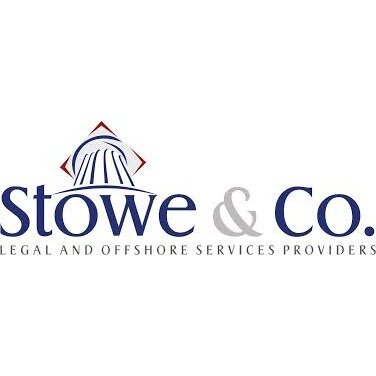Best Franchising Lawyers in Dominica
Share your needs with us, get contacted by law firms.
Free. Takes 2 min.
Or refine your search by selecting a city:
List of the best lawyers in Dominica
About Franchising Law in Dominica
Franchising is a popular business model in Dominica where one party (the franchisor) grants another party (the franchisee) the right to use its trademark or trade name and certain business systems and processes for a fee. This allows the franchisee to operate a business with a proven system and established brand. Franchising in Dominica is governed by specific laws and regulations to protect both parties in the franchise agreement.
Why You May Need a Lawyer
Legal assistance may be necessary in various situations related to franchising in Dominica. This can include drafting or reviewing franchise agreements, resolving disputes between franchisors and franchisees, ensuring compliance with local laws and regulations, and representing clients in legal proceedings. A lawyer specializing in franchising can provide valuable advice and guidance to protect your rights and interests.
Local Laws Overview
The laws governing franchising in Dominica are primarily outlined in the Commercial Code and the Consumer Protection Act. These laws regulate the relationship between franchisors and franchisees, disclosure requirements, dispute resolution mechanisms, termination of franchise agreements, and other important aspects of franchising. Understanding these laws is crucial for both parties involved in a franchise agreement to ensure compliance and prevent legal issues.
Frequently Asked Questions
1. What is the legal definition of a franchise in Dominica?
In Dominica, a franchise is defined as a contractual relationship where one party (the franchisor) grants another party (the franchisee) the right to operate a business using its trademark, trade name, and business systems in exchange for a fee.
2. What are the key elements of a franchise agreement in Dominica?
A franchise agreement in Dominica typically includes details about the franchisor-franchisee relationship, the rights and obligations of each party, fees and royalties, territorial rights, training and support obligations, and dispute resolution mechanisms.
3. What are the disclosure requirements for franchisors in Dominica?
Franchisors in Dominica are required to provide prospective franchisees with a disclosure document containing important information about the franchisor, the franchise system, financial obligations, and other relevant details at least 14 days before signing the franchise agreement.
4. Can a franchise agreement be terminated in Dominica?
Yes, a franchise agreement can be terminated in Dominica under specific circumstances outlined in the agreement or by mutual consent of both parties. Termination may also occur due to breach of contract, non-payment of fees, or other reasons specified in the agreement.
5. How are disputes between franchisors and franchisees resolved in Dominica?
Disputes between franchisors and franchisees in Dominica are typically resolved through negotiation, mediation, or arbitration as specified in the franchise agreement. If a resolution cannot be reached, the parties may seek legal assistance to settle the dispute through litigation.
6. Are there any restrictions on foreign franchisors operating in Dominica?
Foreign franchisors looking to operate in Dominica must comply with local laws and regulations governing franchising. They may need to register their franchise system, obtain necessary permits and licenses, and ensure compliance with local consumer protection laws.
7. What are the rights of franchisees in Dominica?
Franchisees in Dominica have rights protected by law, including the right to receive accurate and complete information from the franchisor, the right to operate the franchise business according to the agreed terms, the right to training and support, and the right to terminate the agreement under certain conditions.
8. Can a franchisee sell or transfer their franchise in Dominica?
Franchisees in Dominica may be able to sell or transfer their franchise with the franchisor's approval and in compliance with the terms of the franchise agreement. The agreement may specify conditions and restrictions on the sale or transfer of the franchise.
9. What are the financial obligations of franchisees in Dominica?
Franchisees in Dominica are typically required to pay an initial franchise fee, ongoing royalties or fees, marketing contributions, and other financial obligations as specified in the franchise agreement. It is important for franchisees to understand their financial commitments before entering into a franchise agreement.
10. How can a lawyer help with franchising matters in Dominica?
A lawyer specializing in franchising in Dominica can provide legal advice and guidance on drafting or reviewing franchise agreements, resolving disputes, ensuring compliance with local laws, protecting rights and interests, and representing clients in legal proceedings related to franchising.
Additional Resources
For more information on franchising laws and regulations in Dominica, you can contact the Dominica Association of Franchisees or consult the Ministry of Commerce, Enterprise, and Small Business Development. These resources can provide valuable insights and assistance for individuals seeking legal advice in franchising.
Next Steps
If you require legal assistance in franchising in Dominica, it is advisable to consult a qualified attorney with experience in this field. The lawyer can help you understand your rights and obligations, negotiate favorable terms in the franchise agreement, and resolve any legal issues that may arise during the franchise relationship. Make sure to gather all relevant documents and information before meeting with the lawyer to ensure a successful consultation.
Lawzana helps you find the best lawyers and law firms in Dominica through a curated and pre-screened list of qualified legal professionals. Our platform offers rankings and detailed profiles of attorneys and law firms, allowing you to compare based on practice areas, including Franchising, experience, and client feedback.
Each profile includes a description of the firm's areas of practice, client reviews, team members and partners, year of establishment, spoken languages, office locations, contact information, social media presence, and any published articles or resources. Most firms on our platform speak English and are experienced in both local and international legal matters.
Get a quote from top-rated law firms in Dominica — quickly, securely, and without unnecessary hassle.
Disclaimer:
The information provided on this page is for general informational purposes only and does not constitute legal advice. While we strive to ensure the accuracy and relevance of the content, legal information may change over time, and interpretations of the law can vary. You should always consult with a qualified legal professional for advice specific to your situation.
We disclaim all liability for actions taken or not taken based on the content of this page. If you believe any information is incorrect or outdated, please contact us, and we will review and update it where appropriate.
Browse franchising law firms by city in Dominica
Refine your search by selecting a city.











